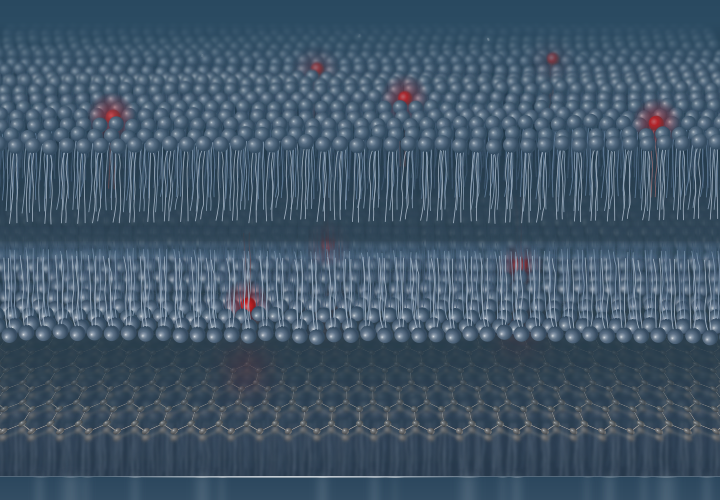Physicist Professor Jörg Enderlein from the University of Göttingen has been awarded an Advanced Grant by the European Research Council (ERC). The ERC has supported Enderlein's project – "Single-molecule, metal-induced energy transfer" – since the beginning of January 2021. The grant is worth a total of around 2.8 million euros and will run for five years. The ERC Advanced Grants scheme funds ground-breaking projects led by outstanding and experienced researchers.
The aim of the project is to develop new microscopy technology that can be used to study structural details, as well as the movement and behaviour of individual molecules, with unprecedented spatiotemporal resolution. This new method will enable the investigation of the structure, dynamics and interaction of biological molecules (protein molecules, fats, nucleic acids) in real time, opening up completely new opportunities for biophysical and biomedical research. The project thus combines basic physics research with an extensive range of applications in biology and medicine.
Jörg Enderlein, born in 1963, studied physics at the Ilya Mechnikov University in Odessa, Ukraine. After working at the Central Institute for Physical Chemistry in Berlin and the Max Planck Institute for Nutritional Physiology in Dortmund, he received his doctorate from the Faculty of Chemistry at Humboldt University in Berlin in 1992. He then became a research associate at PicoQuant GmbH in Berlin, a visiting scientist at Los Alamos National Laboratory in the USA and an assistant professor at the University of Regensburg, where he completed his “habilitation” promotion in physical chemistry in 2000.
As a Heisenberg Fellow of the German Research Foundation (DFG), he led a research group at the Forschungszentrum Jülich from 2001 to 2007. In 2007, he accepted a professorship for Biophysical Chemistry at the University of Tübingen, and since 2008 he has been Professor for Biophysics and Complex Systems at the University of Göttingen. Since January 2021, he has been editor-in-chief of the newly founded journal "Biophysical Reports" of the Biophysical Society, the world's largest international society of biophysicists.
Contact:
Professor Jörg Enderlein
University of Göttingen
Faculty of Physics
Friedrich-Hund-Platz 1, 37077 Göttingen
Tel: +49 (0) 551 39-26908
Email: jenderl(at)gwdg.de
Internet: www.joerg-enderlein.de


